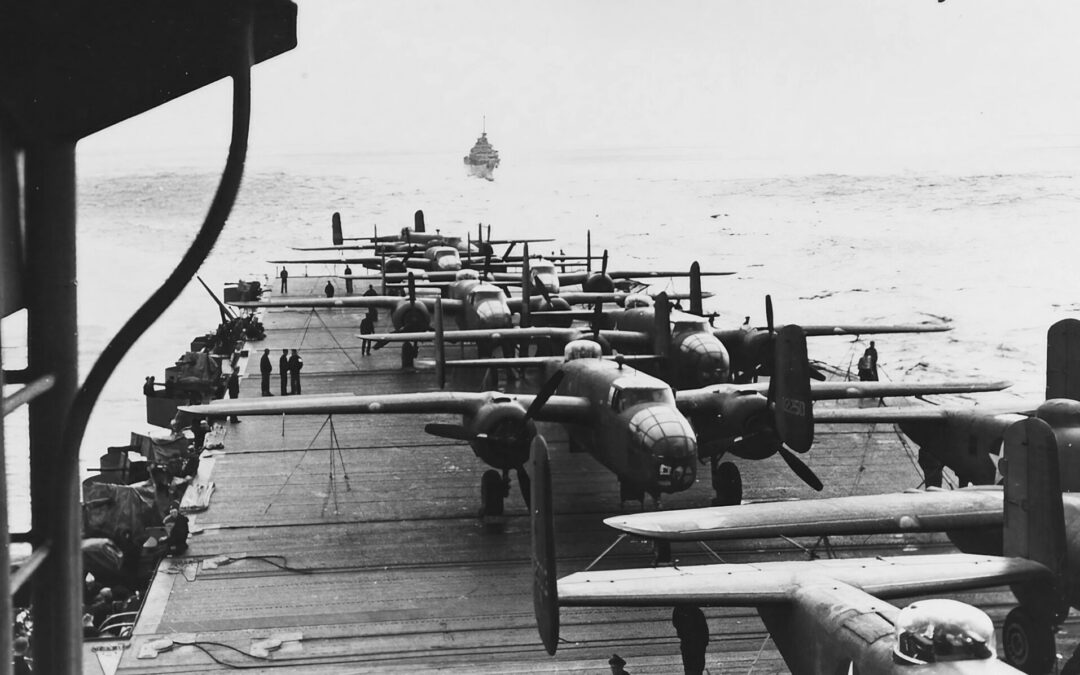The Doolittle Raid
… also known as the Tokyo Raid, was a daring and audacious military operation conducted by the United States during World War II. Led by Lieutenant Colonel James Doolittle, a renowned aviator and military strategist, the raid had a significant impact on the course of the war and showcased the determination and ingenuity of the American forces.
The Doolittle Raid was conceived as a response to the devastating Japanese attack on Pearl Harbor in December 1941. The United States was eager to strike back at Japan and boost morale both at home and among its allies. The plan involved launching a surprise bombing raid on the Japanese mainland, specifically targeting Tokyo and other major cities.
On April 18, 1942, sixteen B-25 Mitchell bombers
… each carrying a crew of five, took off from the USS Hornet aircraft carrier. The audacity of launching medium-range bombers from an aircraft carrier was unprecedented and required meticulous planning and coordination. The bombers, stripped of unnecessary weight to maximize fuel efficiency, faced a daunting challenge: they had to fly over 600 miles to reach their targets, drop their bombs, and then continue to China, where they hoped to land safely.
The Doolittle Raid was not intended to cause significant damage to Japan’s industrial infrastructure but rather to deliver a psychological blow and demonstrate that Japan was not invulnerable. The raid achieved its objectives by striking fear into the Japanese population and military leadership, who had believed their homeland was beyond the reach of American forces.
While the physical damage caused by the raid was relatively minor, the psychological impact was immense. The raid boosted American morale and shattered the myth of Japanese invincibility. It also forced Japan to divert resources and military assets to defend its homeland, which had a significant impact on its overall war strategy.
The Doolittle Raid also had important strategic implications. It demonstrated the feasibility of launching long-range bombing missions from aircraft carriers, which would later become a crucial tactic in the Pacific theater. The raid also provided valuable intelligence on Japanese defenses and boosted the confidence of American forces, setting the stage for future operations.
The bravery and skill
… of the Doolittle Raid participants cannot be overstated. The crews faced numerous challenges, including limited fuel, adverse weather conditions, and the risk of being captured by the enemy if they were forced to bail out over Japanese-controlled territory. Despite these obstacles, all but one of the bombers successfully reached China, with some crews crash-landing or bailing out over enemy territory.
In conclusion, the Doolittle Raid was a daring and impactful military operation that had a significant impact on the course of World War II. Led by Lieutenant Colonel James Doolittle, the raid showcased the determination and ingenuity of the American forces. While the physical damage caused by the raid was relatively minor, its psychological impact on Japan and the boost it provided to American morale were immeasurable. The Doolittle Raid remains a testament to the bravery and skill of those who participated and serves as a reminder of the audacity and resourcefulness required to achieve victory in war.


What You have to say